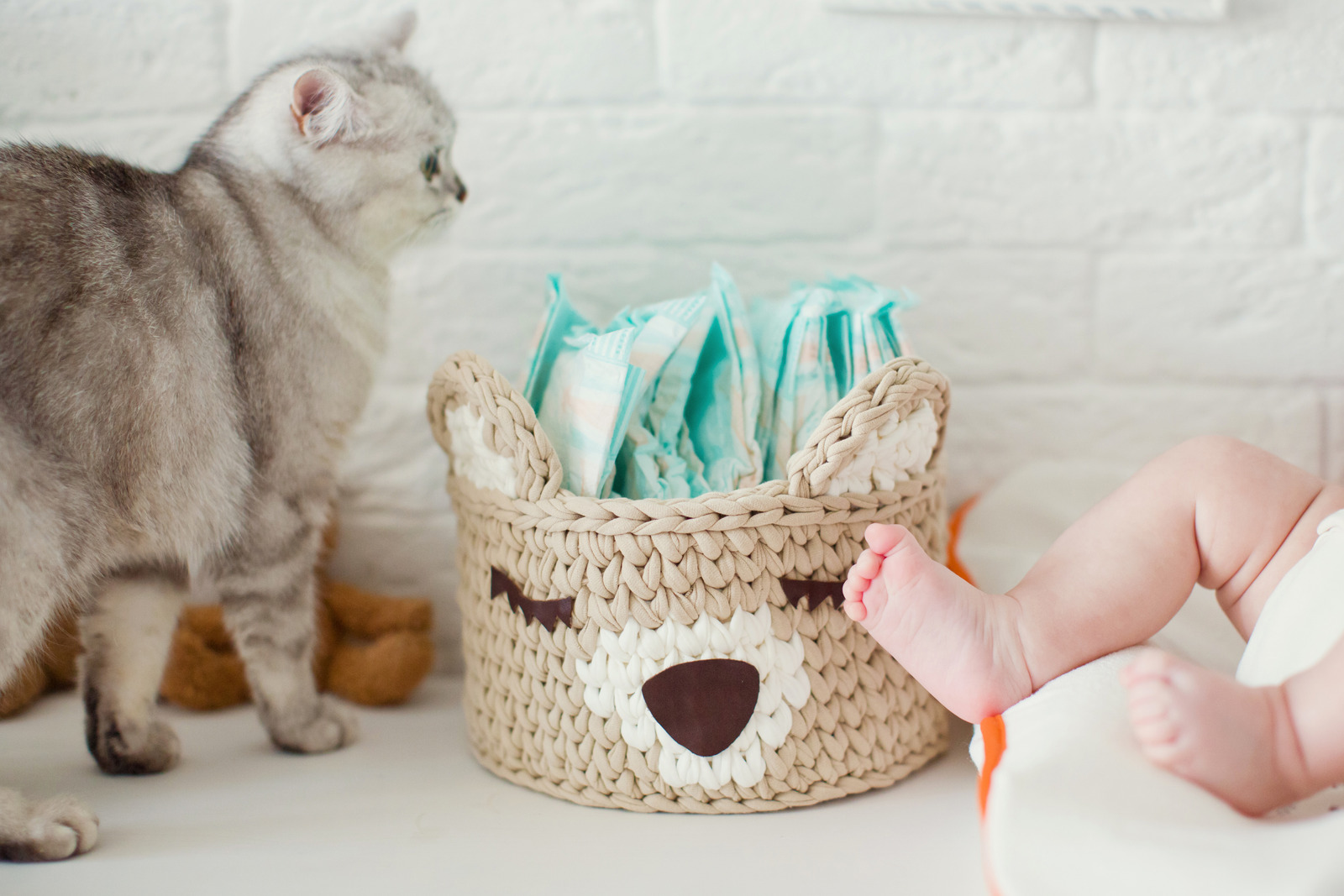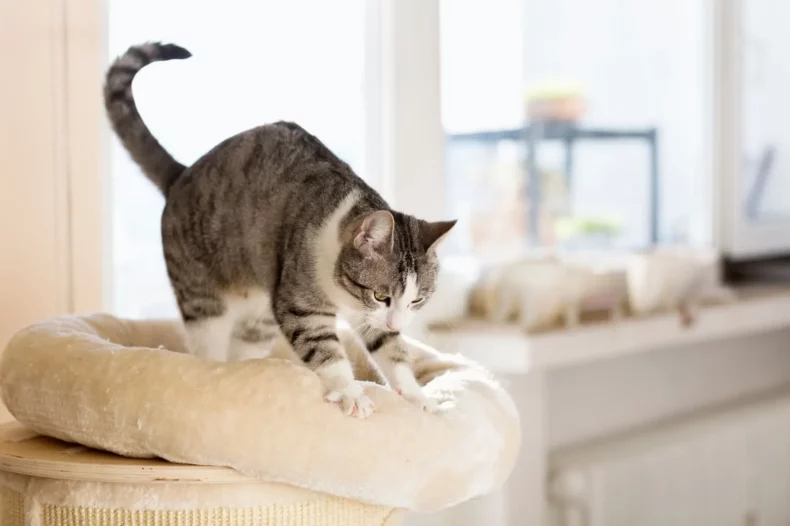
Why your cat suddenly pees in the house and what you can do about it!
If an adult cat who has been using the litter box for years suddenly starts urinating outside of it, she might be (temporarily) not litter trained. She is certainly not doing it to be annoying. Read this blog to learn about the different causes and what you can do!
Is your cat urinating or spraying?
Spraying means a cat is marking her territory with urine or trying to communicate something to you (like not feeling well, for example). During spraying, the cat urinates against vertical surfaces while standing and with a quivering tail held up. The urine amounts are small and may appear greasier than normal urine. Moreover, the odor is stronger. Both female and male cats can spray, but non-neutered males are more likely to do so than neutered ones.
Why is my cat spraying in the house?
When a cat sprays, the cause is a behavioral problem. Spraying is a form of communication through which your cat tries to convey a message. This message can be directed towards other cats, herself, or even to us. In non-neutered cats, the message is often clear: “I am fertile.” Neutered cats are more likely to feel unwell or experience stress. Unlike neutered cats, it is normal for non-neutered cats to spray indoors. Neutered cats may also spray occasionally, usually in the garden, to exchange information with other neighborhood cats. If a neutered cat sprays indoors, it’s best to consult a veterinarian or behavior specialist.
Why is my cat urinating in the house?
There can be several reasons why your cat is urinating indoors, despite being litter trained. Usually, psychological or medical problems are the underlying causes:
1. Psychological causes
-
A new cat in the household
When a new cat joins the family, the existing cat may resist the change. Multiple cats may not get along well, especially when they have to share a litter box. The result: your cat urinates in the house as a protest!
-
Changes in the environment
Changes in your cat’s territory can also cause her to urinate indoors. This could include moving to a new home, introducing a new family member (e.g., a baby), or even a new cat in the neighborhood.
-
A traumatic experience
Your cat may associate her litter box with a traumatic event. For example, she might have been scared, attacked, or experienced pain. Providing a new litter box in a different location in the house can solve this problem.
-
Owner’s scent
If your cat urinates on the bed or in the laundry basket, it may indicate that she feels anxious and only feels safe enough to relieve herself where your scent is present. Things that smell like the owner provide a sense of security.
 Hooray! A baby. But cats can suddenly urinate in the house due to this change in their territory.
Hooray! A baby. But cats can suddenly urinate in the house due to this change in their territory.
2. Medical problems
-
Bladder infection or bladder stones
A bladder infection usually arises from stress. As a result, your cat may need to urinate more frequently and have difficulty holding her urine. Urinating becomes painful, and your cat develops a negative association with her litter box, causing her to avoid using it. There are painkillers and anti-inflammatory medications for bladder infections or special diets for bladder stones, but it’s best to consult a veterinarian for advice!
-
Kidney failure, thyroid, liver failure, or diabetes
Kidney failure, thyroid problems, liver issues, or diabetes can encourage increased drinking, leading to more frequent urination and reduced bladder control. For these conditions, it’s essential to visit the veterinarian for an examination of your beloved cat.
Important: Don’t underestimate the value of a healthy diet for healthy urinary tracts and maintaining a healthy weight. Tailored cat food may be the solution if your cat is suddenly urinating indoors.
What can you do if your cat is urinating indoors? 7 tips!
1. Do not punish your cat
Have you ever heard that you should push her nose into her urine when she urinates outside the litter box? We strongly advise against doing that because it will create extra stress and exacerbate the problem. Cats are clean animals, so there is a valid reason for their inappropriate urination. Punishment is ineffective.
2. Restrict access to certain areas of your home
By doing so, you limit the places that can serve as a toilet. If there has been urination in the house, clean that spot with products that emit a strong odor and simultaneously eliminate strong odors. For example: Urine Off.
3. Relocate the litter box
If your cat consistently urinates in the same place but not in the litter box, try placing the litter box in that spot.
4. Give your cat enough attention
Is there a new family member in the house? Make sure to give the existing cat some extra attention. Multiple cats in the household? The rule is: one litter box per cat.
5. Provide a calm and safe feeling
Cats also
prefer to relieve themselves in a calm and safe place. Therefore, avoid placing litter boxes next to a washing machine, staircase, or dishwasher. A window where other cats can look inside can also be scary. If the litter box is placed near the food or water… Do you like eating on the toilet?
6. Keep the litter box clean
A clean cat prefers a clean toilet. So, scoop the litter box daily and provide well-absorbing, odorless cat litter with a fine texture. In nature, felines seek sand-like substances to relieve themselves.
7. Ensure enough space
It may be the smallest room in the house, but preferably not too small. Research shows that cats prefer an open litter box. In a closed box, unpleasant odors may linger, making the litter box unattractive. Also, remember that the litter box should be one and a half times larger than your cat.
If you have a kitten at home that is still learning the ropes of litter training, we are here to help! Check out the blog How do I make my kitten litter trained to discover the best tips.



